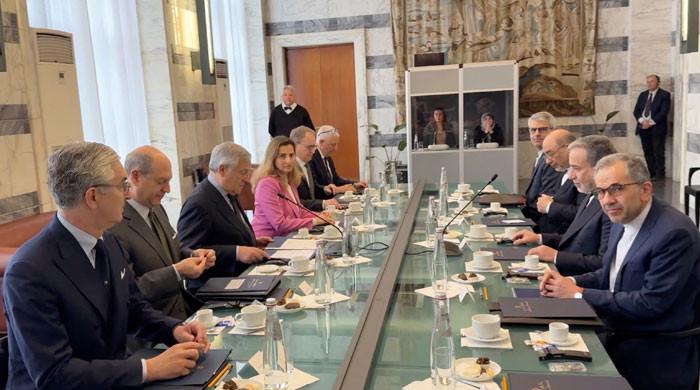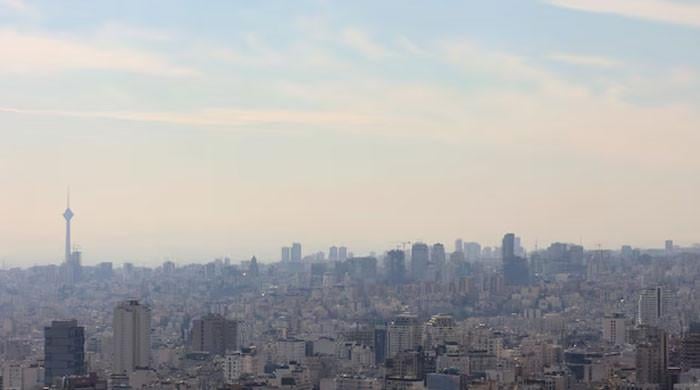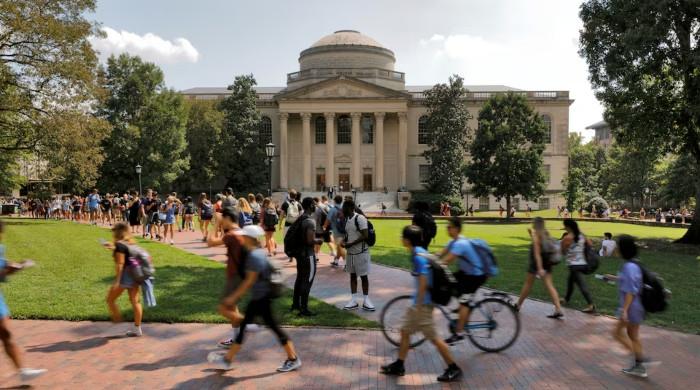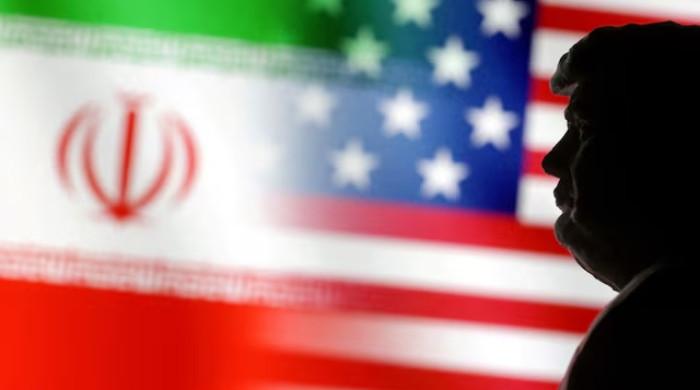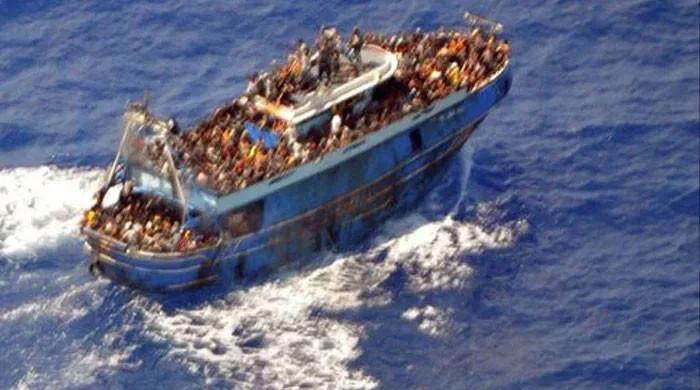Thousands of Muslims arrive in Makkah for Hajj
Saudi minister in charge of religious pilgrimages, Tawfiq al-Rabiah, warned last week of "no political activity" to be tolerated
June 12, 2024
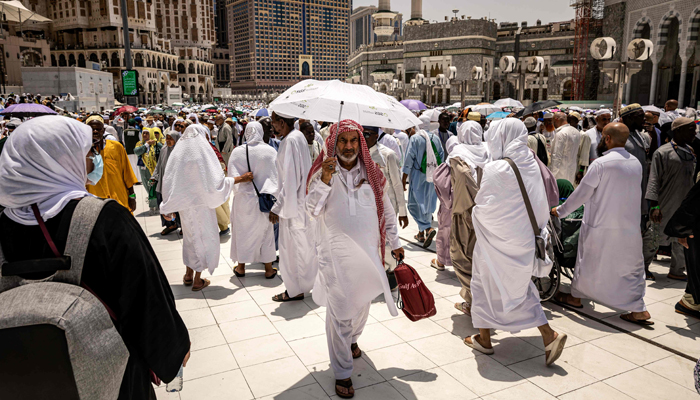
Hundreds of thousands of Muslims have flocked to the Saudi holy city of Makkah for the Hajj pilgrimage, as the religious festivities of Zil Hajj commenced last week.
One of the world's largest annual religious gatherings officially begins Friday, and the officials in Saudi Arabia are trying to keep the focus on prayers.
The Saudi minister in charge of religious pilgrimages, Tawfiq al-Rabiah, warned last week that "no political activity" will be tolerated.
The Hajj, one of the five pillars of Islam, must be performed at least once by all Muslims with the means.
As of late Monday around 1.5 million pilgrims had arrived in the oil-rich country from abroad, most of them by air, the official Saudi Press Agency reported.
Last year saw more than 1.8 million people complete the hajj rites, which last for several days. Around 90% came from overseas, mainly from elsewhere in the Arab world and from Asia, according to official figures.
Israel's withering military operations against Hamas militants in Gaza have "created a lot of anger in [the] broader Muslim world", turning this year's hajj into a "test" for Saudi leaders, said Umer Karim, an expert on Saudi politics at the University of Birmingham.
"Protest or performance is bound to happen by individuals or groups of pilgrims, and Saudis understand this is a slippery slope," he said. "Thus for Saudi rulers conducting hajj is a matter of prestige but also a test of their governance."
High temperatures
The rites in Makkah and its surroundings fall again this year during the hot Saudi summer, with officials forecasting average high temperatures of 44 degrees Celsius (111 degrees Fahrenheit).
Last year, more than 2,000 people suffered heat stress, which includes heatstroke, exhaustion, cramps and rashes, according to Saudi authorities.
The real figure was probably far higher, as many sufferers were not admitted to hospitals or clinics.
Pilgrims have already arrived en masse in Makkah to begin circling the Kaaba.
Large crowds at the hajj have proved hazardous in the past, most recently in 2015 when a stampede during the "stoning the devil" ritual in Mina, near Makkah, killed up to 2,300 people in the deadliest hajj disaster.
Managing the gathering represents "a logistical achievement", said Bernard Haykel, a Saudi expert at Princeton University, with extensive surveillance and monitoring in place for security and health reasons.
Pilgrimages to Makkah are a financial windfall for Saudi Arabia, generating billions of dollars as the world's biggest crude oil exporter tries to develop its tourism sector.
Umrah, the pilgrimage which can be performed throughout the year, drew 13.5 million faithful last year, and authorities are targeting 30 million hajj and Umrah pilgrims by 2030.






